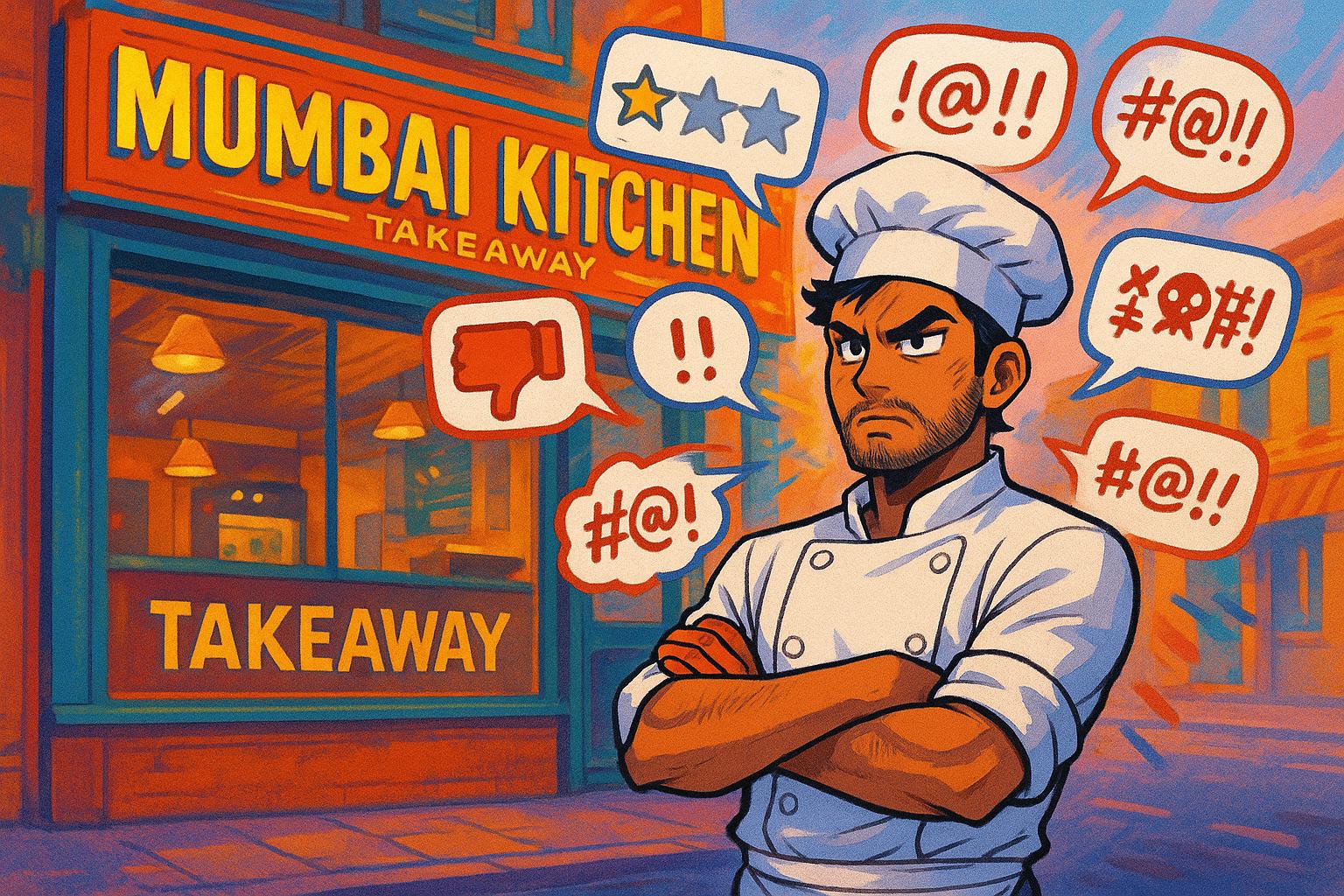The ongoing saga of reputational strife faced by Mumbai Kitchen, an Indian takeaway situated in Tiverton, Devon, has ignited a heated debate about the etiquette and ethics of customer feedback in the restaurant industry. Maruf Ahmed, the owner, has found himself at the centre of a storm following vehement responses to what he claims are fraudulent negative reviews aimed at undermining his business.
The controversy erupted after several one-star reviews appeared online, criticising the quality of the food and service at Mumbai Kitchen. Complaints ranged from allegations of meals being "smelly" to accusations of poor customer service, leading some customers to vow never to return. When faced with this barrage of criticism, Mr Ahmed reacted in a manner that has drawn widespread condemnation. His comments, which included wishes that certain reviewers "die in a car accident," have sparked outrage, with social media users branding his response as unprofessional and excessive.
Despite the backlash, Mr Ahmed defended his reaction, asserting that he has endured these "fake reviews" for nearly a year, often from accounts that seemed to be fictitious. “Every single time, one or two were putting these negative reviews... some were from accounts that had just been created,” he explained, expressing his frustration over the situation. He believes that these attacks may stem from a rival or someone with a personal grudge against him, adding that the insults were a desperate cry for understanding rather than a mere tantrum.
The importance of how businesses handle online reviews cannot be overstated. In a digital age where potential customers frequently rely on peer feedback before dining out, a restaurant's reputation can rise or fall based on its online presence. Various platforms, including TripAdvisor, show a mixed bag of responses for Mumbai Kitchen, with several patrons praising its flavours and welcoming atmosphere, contrasting starkly with the critiques of cold food and inconsistency in service. This duality reflects a broader trend seen in the hospitality sector, where polarised reviews can leave potential clients confused about what to expect.
Interestingly, despite the negative attention, many loyal customers have rallied in support of the establishment, taking to social media to assert their positive experiences. One patron, Luis Gordon, indicated his unwavering support by stating, “I’ve had over 100 meals at Mumbai Kitchen over the past ten years, and every single one has been excellent.” This sentiment echoes the views of other regulars who appreciate the restaurant's service and dishes, suggesting that while online ratings play a significant role, personal recommendations can often outweigh digital criticism.
The incident also raises questions about broader industry practices concerning fake reviews, a growing issue that several restaurants have encountered. A report highlighted similar instances elsewhere, where restaurant owners resorted to provocative remarks in response to criticisms, sparking dialogue about the need for platforms to enhance their measures against disingenuous reviews.
In light of this incident, Mr Ahmed expressed a desire for his words to serve more as a deterrent than a threat, invoking the idea of “bad luck or karma” to deter potential future reviewers. While illness is a real concern among restaurateurs during this pandemic recovery period, navigating feedback and maintaining personal integrity is equally crucial.
Despite the current turbulence, Mr Ahmed remains optimistic. He highlighted that his business, having recently opened a second location in Taunton, continues to thrive, thanks in no small part to the support of his devoted customer base. As he prepares to celebrate the anniversary of this new opening, it remains clear that the road to redemption amid online criticism is often fraught with challenges. However, the strength of community support may yet prove to be the lifeblood for Mumbai Kitchen during its most trying times.
Reference Map
- 1
- 2
- 3
- 4
- 5
- 6
- 7
Source: Noah Wire Services
